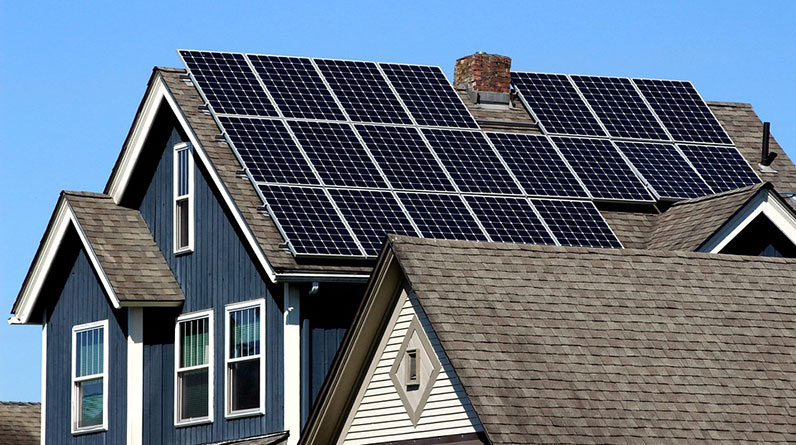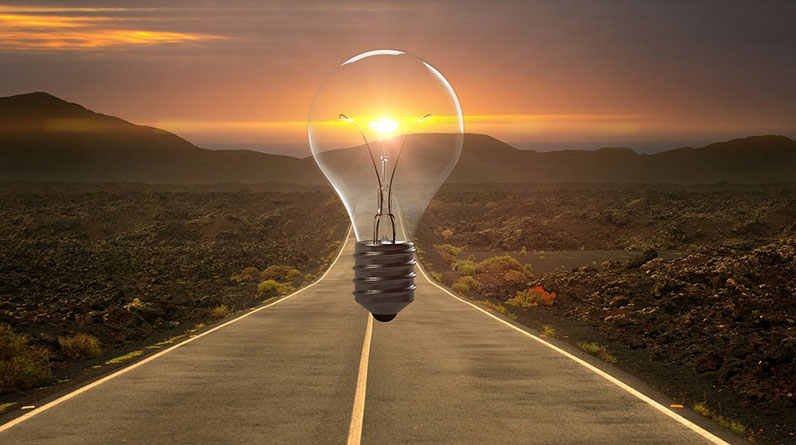
Solar Energy – What You Need to Know
When you think of solar energy, you probably picture panels on the roof, maybe a trailer with a generator, and definitely not something that would work for your home.
Solar power is great for powering remote locations or even space stations, but what about in the suburbs? Most people don’t have an abundance of sunlight where they live. There are a lot of complexities when it comes to different kinds of solar energy.
If you’ve been thinking about using solar power but need some convincing, keep reading to learn what you’ll need to know about solar energy as it relates to your home.
How Does Solar Energy Work?
A solar energy system works by converting the sun’s rays into usable energy. The sun’s energy heats up a solar panel, which causes electrons to move. The movement of these electrons creates an electrical current.
This electrical current is then stored in a solar energy storage device, such as a battery. When the electrical current is needed, the solar energy system draws the energy from the storage device. This can be used to power your home’s electrical appliances or to heat water for use in the home.
Solar energy is created by photovoltaic cells, which are essentially silicon that’s been treated and formed into panels. Although silicon is used in photovoltaic cells, the silicon is not melted down. Instead, it’s treated and then formed into thin wafers and vacuum sealed, along with other elements, in order to create the cells.
The photovoltaic cells are typically installed on the roof of your home, and they capture photons of solar energy. These photons are then converted into electrons, which are collected and sent to an inverter. The inverter changes the current from DC to AC. AC, or alternating current, is the type of current that is used in your home. Solar energy isn’t direct current, which is the type of energy that batteries produce.
Solar energy is DC, or direct current. The inverter then sends that energy to your home’s electrical circuits through a series of wires.
Advantages of Solar Energy
There are many advantages to installing a solar energy system. Solar panels provide sustainable energy for homes and businesses. This can reduce the cost of energy bills, as there is no need to buy energy from the grid.
- Solar energy is eco-friendly, which is a big plus for many people. Solar panels don’t require fossil fuels or resources like coal or natural gas to create energy, which is a major advantage.
- Solar energy doesn’t produce any pollution, which makes it a better choice for the environment.
- Solar panels don’t need to be replaced as often as other types of energy-producing devices do.
- Solar energy is very reliable and consistent. Solar panels produce energy during the day, when demand is highest, so they help avoid brownouts and blackouts.
- Solar panels don’t need to be connected to the grid.
Disadvantages of Solar Energy
- Although solar energy is a clean source of energy, it’s not always 100 percent clean.
- Solar power isn’t available on a cloudy day.
- Solar panels require a large amount of space.
- Solar panels can be very expensive although the price has steadily decreased over the years.
- Solar power systems can be fairly complicated and usually need to be installed by a professional.
Going Solar Means Paying Up-Front Costs
Depending on your power provider and your current electricity rates, you might actually end up saving money by going solar. If you’re on a fixed-rate plan, however, you might end up paying more in the long run.
While it’s true that you’ll need to pay up-front costs, those costs can be recouped reasonably quickly.
If you’re on a fixed-rate plan, you’ll likely benefit if you go solar when your contract ends. You’ll be able to lock in a lower rate with your provider if you go solar.
If you’re on a variable rate plan, you’ll pay more upfront, but you may also end up saving money in the long run. It all depends on how your rates change.
When Choosing Solar, be Aware of These Pitfalls
- Solar panels are extremely delicate and can break easily if not handled properly.
- If you live in a hurricane-prone area, solar panels might not be the best option for you.
- Solar panels need to be installed properly. Poorly installed panels could short circuit, which could cause your house to catch on fire.
- Solar panels need to be cleaned regularly to ensure they function properly.
Summing it Up
Solar energy is clean, reliable, and consistent. It’s also eco-friendly and doesn’t require fossil fuels to produce electricity. However, it’s important to remember that solar energy is not 100 percent clean. It also requires a large amount of space and is very expensive. Solar energy is best for someone who lives in an area that gets a lot of sunlight, doesn’t mind cleaning the panels, and has the money to install and maintain a solar energy system.

